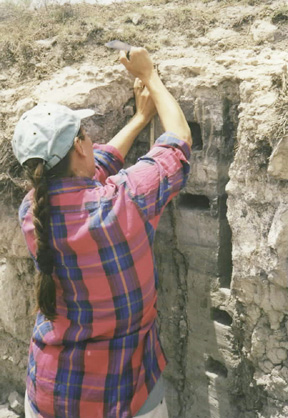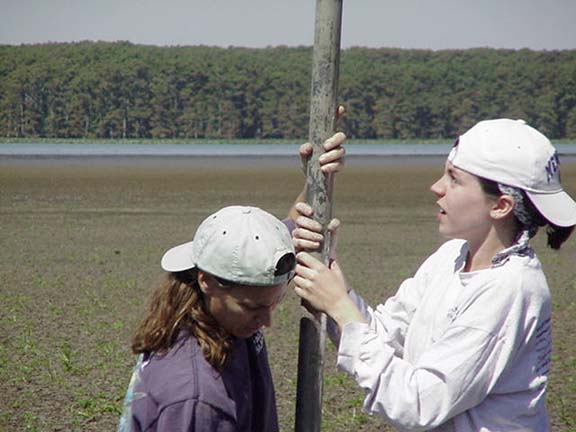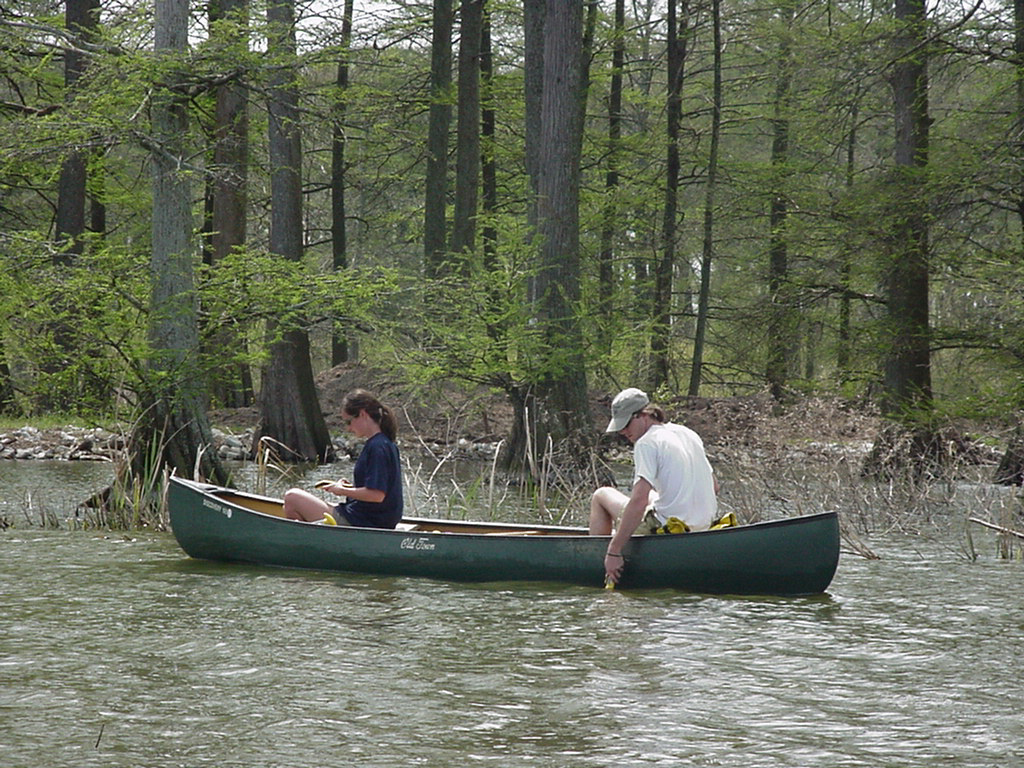The Paleoenvironmental Laboratory (PAL)
at UMKC
The Paleoclimatology
Laboratory (PAL) in the Department of Geosciences features a wide variety
of field equipment for the collection of geologic and botanic samples. It
also has a full range of instrumentation suitable for complete characterization
of sediment and biotic specimens in the analysis and reconstruction of past
and present environments.
Research
Projects
Paleoenvironments of the Jordan Plateau


This research, in cooperation with Natural Resources Authority of Jordan and the American Center of Orient Research, examines variations in Pleistocene paleoclimate from lacustrine sediments. The eastern An Nafud desert features several large playa basins indicating a moister past environment. Sediment and geochemical analyses defined multiple changes in the paleoenvironment that reflect significant changes in moisture balance and indicate regional climate changes. This research has been funded by a Fulbright Scholarship and an ACOR Research Fellowship.
Bamboo Regeneration History in the Foping
Panda Reserve, China

YaYa, curosity Memphis Zoo
This project, in collaboration with Dr. Scott Franklin and Wei Wang, Biology Department, University of Memphis, Dr. John Ouellette, Memphis Zoological Society, explores the role of fire and die-off in bamboo regeneration in the Foping Panda Reserve, China. We are reconstructing the fire history of bamboo through soil pollen, phytolith, and charcoal analysis to developing an understanding of bamboo dynamics in order to provide a predictable model of future bamboo die-off events.
Paleoenvironments of the Dhamar Highlands, Yemen


The Dhamar Highlands of Yemen is a dramatic landscape bounded to the north by the Rub al-Khali desert, and to the south and east by the Indian Ocean. Lacustrine deposits from these highlands record significant changes in paleohydrology. This research examines numerous sediments and a peat deposit to reconstruct long-term changes in paleoenvironment and Quaternary climate. These climate shifts provide the context for extensive human modification of the landscape in pursuit of agriculture activities. This research is conducted in conjunction with Dr. Tony Wilkinson and the University of Chicago, Oriental Institute project Archaeological and Environmental Investigation of Yemeni Terraced Agriculture.
Sedimentation and Vegetation Dynamics of
Mississippi River Oxbow Lakes


Oxbow lakes form critical wetlands in river floodplain environments. As discrete features on the landscape these ecosystems have numerous biogeocycling functions such as; sediment storage, absorbing pollutants, and cycling of nutrients. This research researches sedimentation and vegetation dynamics of oxbow lakes (Lake Wapanocca, AK and Crutcher Lake, TN) in the Mississippi River floodplain. It examines the evolution of ecosystem dynamics linked to long-term human modification of the surrounding floodplain and changing land use patterns. Collaborators include: US Fish and Wildlife Service, Wapanocca Wildlife Refuge, and Dr. Thad Wasklewicz Department of Geography and Dr. Scott Franklin, Department of Biology, University of Memphis.
Equipment:
• Coulter LS200 laser sediment analyzer
• UIC coulometer for analysis of TC/TOC/TIC
• large drying oven and large muffle furnace
• several research grade microscopes with digital imaging
• hot plates, magnetic stirrers, analytical balances
Contact: Molly Davies
(816) 235-1335
daviesc@umkc.edu